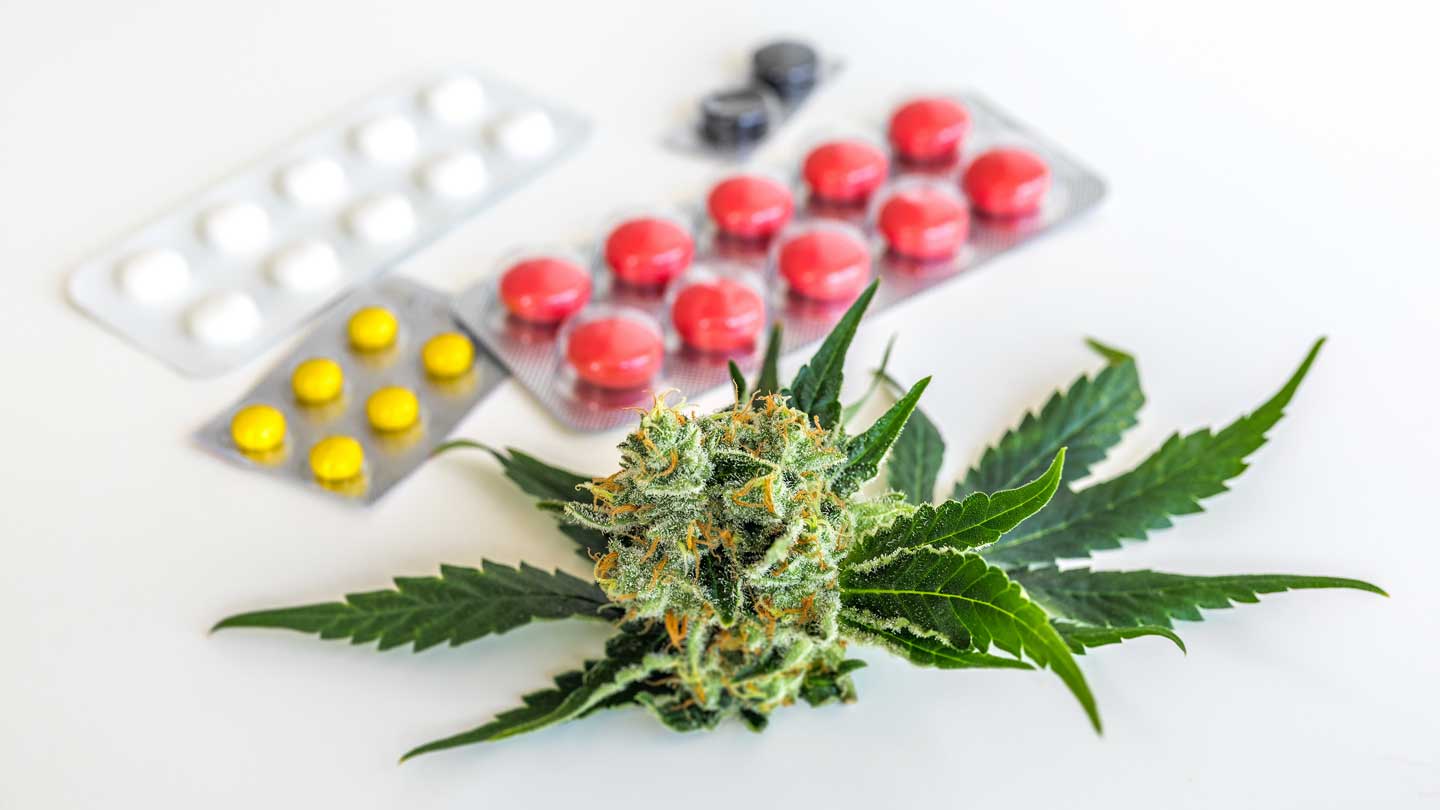Introduction
The promotion of medicinal cannabis products presents some specific challenges given that very few such products are approved therapeutic goods on the Australian Register of Therapeutic Goods (ARTG). In such circumstances, to what extent can suppliers make therapeutic claims, and can such products be advertised at all? What other communications about medicinal cannabis products are permitted? We explore these questions and other advertising considerations in this Part 5 of our blog series on Medicinal Cannabis in Australia.
We note at the outset that applicable advertising restrictions will vary depending on whether the product is registered on ARTG, and whether the advertising is limited to health professionals or may be viewed by consumers. Applicable restrictions will also extend to product labelling.
Advertising medicinal cannabis products to consumers
Unregistered products may not be advertised to consumers
As noted in Part 2 of our blog series, the majority of medicinal cannabis products available to patients are unregistered, but are available to patients on prescription through either the Special Access Scheme or the Authorised Prescriber Scheme.
Under the Therapeutic Goods Act 1989 (Cth) (Act), therapeutic goods which are not registered on the ARTG may not be advertised to consumers. A therapeutic good is defined in the Act as including a good used in preventing, curing or alleviating a disease or ailment in a person, or modifying a physiological process in a person. Goods which are not registered have not been evaluated by the Therapeutic Goods Administration (TGA) for safety or efficacy.
No registered products can be advertised to consumers (at present)
At present there are no registered medicinal cannabis products that may be advertised to consumers. It remains to be seen whether the TGA will permit advertising of Schedule 3 products (that is, products approved for sale over the counter by pharmacists without prescription) in future.
The Act prohibits advertising to consumers of products included in Schedule 3. Schedule 3 covers products which can be made available over the counter without prescription. Following a TGA safety review of low dose cannabidiol products[1] (Safety Review), this type of product is now eligible for inclusion in Schedule 3 if it (i) comprises 1% or less tetrahydrocannabinol in the total cannabinoid content, and has a maximum dosage of 150mg/day[2] and (ii) is registered on the ARTG. At present no Schedule 3 medicinal cannabis products are registered.
Schedule 3 products may only be advertised to consumers if they are also listed in Appendix H (Poisons Permitted to be Advertised) of the Poisons Standard. It is unclear whether the TGA will list future Schedule 3 medicinal cannabis products in Appendix H following ARTG registration. The report from the Safety Review does not address advertising.
The Act prohibits advertising to consumers of products included in Schedule 4 or 8 of the Poisons Standard[3]. As the only two medicinal cannabis products currently registered in Australia are Schedule 4 or 8 products[4], in effect, this means that no currently ARTG registered medicinal cannabis products can be advertised to consumers.
Therapeutic Goods Advertising Code
Advertising for therapeutic goods (where permitted by the Act) must comply with the Therapeutic Goods Advertising Code (Code). From 1 July 2022 a new version of the Code[5] applies to advertising in relation to all therapeutic goods. All parts of an advertisement must comply, even claims which do not relate to the therapeutic effect of the goods. Criminal offences and civil penalties may apply for non-compliance.
In general, the Code requires advertisements to be accurate and not misleading, and to only contain information substantiated by the advertiser. Advertisements must not contain representations that the goods are safe, without side effects or effective in all cases. Advertisements which refer to scientific research must include certain information about that research. Care is also required when making product comparisons. ‘Restricted representations’, that is, representations which refer to serious forms of a disease or condition (as defined in the Code) must be approved in advance by the TGA.
The Code also contains specific requirements for wording used to describe aspects of the product such as the product name, dosage and indications, as well as for testimonials, endorsements and pricing information. Specific rules apply to references to the TGA or the effect of registration on the ARTG.
Other communications to the public which are not advertising
The prohibitions discussed above and the requirements of the Code are limited to advertising. Communications which are not advertising are not subject to the Code.
The Act defines advertising of therapeutic goods to include any statement, pictorial representation or design that is intended, whether directly or indirectly, to promote the use or supply of the goods. Advertising includes material included on the product package as well as more widely available material such as in the media. Whether something is considered to be promoting the goods is determined objectively, not by the intention of the person communicating the statement, representation or design.
Factual information about medicinal cannabis that is not promotional is not subject to the Code. Examples include trade catalogues, price lists, or information relating to human health or disease which does not refer to therapeutic goods. A package leaflet could still be considered advertising if it is promotional. Promotion of health services may not amount to advertising if it does not refer to therapeutic goods.
Even where the Code does not apply, communications, materials and conduct generally must comply with the Australian Consumer Law[6] (ACL). The ACL prohibits misleading or deceptive conduct and/or conduct that is likely to mislead or deceive, including false claims about products or their characteristics, performance suitability or benefits. The prohibitions are broad and will capture a wide range of communications and activities that may reach consumers.
Advertising medicinal cannabis products to health professionals
The prohibitions in the Act on advertising to consumers do not apply to advertising directed exclusively to health professionals such as medical practitioners, dentists, pharmacists, psychologists and nurses, or to wholesalers or certain providers of complementary therapy such as naturopathy.
To ensure that advertising does not contravene a relevant prohibition on advertising to consumers, it is important to take practical measures to ensure that all communications are sufficiently secure so that such advertising can only be accessed by health professionals and will not reach consumers, even indirectly.
The Code does not apply to advertising to health professionals. However the prohibition in the ACL on misleading or deceptive conduct is not limited to conduct directed to consumers, and so will also apply to advertising to health professionals.
Therapeutic claims
Advertising therapeutic goods that are not registered on the ARTG to health professionals is not prohibited by the Act. However regardless of the registration status of the relevant goods, advertising to health professionals must comply with the ACL and so must not be misleading or deceptive.
There is no clear guidance from the TGA on any specific considerations for advertising unapproved but legally available products to health professionals. In principle, it is clear that any statements about the safety or efficacy of therapeutic goods should be current, accurate and substantiated. In practice, because the TGA has not approved the goods, it may be more important to provide some independent evaluation of their safety and efficacy, to keep good records of the basis on which therapeutic claims are made, and to ensure appropriate substantiation. Including disclaimers in advertising material may not be sufficient to avoid or overcome an overall misleading impression.
A further issue to consider is whether any promotion of an unregistered medicinal cannabis product may carry an implied representation that it has been approved by the TGA unless its unregistered status is specifically noted. When considering the general population, this may well be a risk. However it can be expected that health practitioners are likely to be more aware of the ATRG status of such products, and the pathways by which they can be prescribed to patients. In those circumstances the risk of a misrepresentation in this respect appears lower. However, clearly communicating the registration status of an advertised product and the means by which such product can be prescribed (for example via the AP and SAS pathways), should assist to avoid any confusion in this respect.
Additional requirements for product labelling
The Therapeutic Goods (Standard for Medicinal Cannabis) (TGO 93) sets out additional labelling requirements for medicinal cannabis products. In particular, labelling must include information such as the name and contact details of the sponsor, storage conditions, batch number and expiry date, name and quantity of each active ingredient, as well as additional information for plant preparations. More limited requirements apply to products which are compounded or repackaged by a pharmacists for specific patients.
Concluding remarks
As is clear from the above, the laws and regulations applicable to advertising of therapeutic goods are not straightforward. As pathways for supply of medicinal cannabis products continue to open up, we expect to see more of a focus on the circumstances in which they can be advertised and the requirements for doing so. In the meantime, as with any advertising for therapeutic goods, it is worthwhile obtaining pre-publication clearance to avoid falling foul of applicable requirements.
[1] The resulting report, Safety of low dose cannabidiol, April 2020, can be found at this link.
[2] Other limitations on the type of medicinal cannabis product also apply.
[3] Also known as the ‘Standard for the Uniform Scheduling of Medicines and Poisons’. The Poisons Standard, as updated from time to time, can be round at this link. Schedule 4 and 8 products are discussed further in part 1 of our blog series.
[4] See part 1 of our blog series.
[5] Therapeutic Goods (Therapeutic Goods Advertising Code) Instrument 2021
[6] Schedule 2 of the Competition and Consumer Act 2010

Naomi Pearce
CEO, Executive Lawyer (AU, NZ), Patent & Trade Mark Attorney (AU, NZ)
Naomi is the founder of Pearce IP, and is one of Australia’s leading IP practitioners. Naomi is a market leading, strategic, commercially astute, patent lawyer, patent attorney and trade mark attorney, with over 25 years’ experience, and a background in molecular biology/biochemistry. Ranked in virtually every notable legal directory, highly regarded by peers and clients, with a background in molecular biology, Naomi is renown for her successful and elegant IP/legal strategies.
Among other awards, Naomi is ranked in Chambers, IAM Patent 1000, IAM Strategy 300, is a MIP “Patent Star”, and is recognised as a WIPR Leader for patents and trade marks. Naomi is the 2023 Lawyers Weekly “IP Partner of the Year”, the 2022 Lexology client choice award recipient for Life Sciences, the 2022 Asia Pacific Women in Business Law “Patent Lawyer of the Year” and the 2021 Lawyers Weekly Women in Law SME “Partner of the Year”. Naomi is the founder of Pearce IP, which commenced in 2017 and won 2021 “IP Team of the Year” at the Australian Law Awards.

Kate Legge
Special Counsel, Lawyer
Kate is an experienced IP and patent lawyer, providing IP leadership for pharmaceutical product development and commercialisation in global markets – from initial scoping through to post-launch.
She has developed and implemented global IP strategies over more than 15 years at multi-national pharmaceutical companies. She is an Australian qualified and registered legal practitioner, and has a Master’s degree in IP Law and a BSc in biochemistry.

